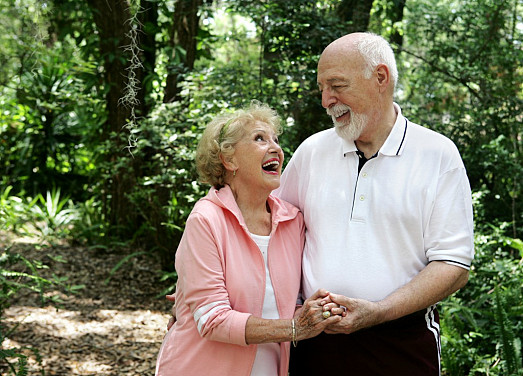Caring for someone with Parkinson's disease is a noble and often challenging task. As a caregiver, you play a vital role in the well-being and quality of life of your loved one with Parkinson's. This article offers valuable insights and advice to help caregivers navigate the complexities of providing support and maintain their own well-being in the process.
 Understanding the role of a caregiver:
Understanding the role of a caregiver:Caring for someone with Parkinson's involves a wide range of responsibilities, from assisting with daily activities to providing emotional support. It's essential to comprehend the unique needs and challenges that come with Parkinson's to provide the best care possible.
Education and empathy: Start by learning about Parkinson's disease, its symptoms, and progression. Understanding what your loved one is going through is crucial for empathy and effective caregiving.
Open communication: Maintain open and honest communication with your loved one. Encourage them to express their feelings, concerns, and preferences. Effective communication can help you address their needs more efficiently.
Support system: Caregiving can be physically and emotionally demanding. Build a support network of family, friends, or support groups to share the responsibilities and provide emotional support for yourself.
Medication management: Keep track of your loved one's medications, appointments, and treatment plans. Ensure they take their medications as prescribed and report any side effects or concerns to the healthcare team.
Mobility and safety: Parkinson's can affect mobility and balance. Make necessary adjustments to the home environment to reduce the risk of falls and ensure safety. Consider assistive devices like handrails or walkers if needed.
Diet and nutrition: Prepare well-balanced, nutritious meals to support overall health. Consult with a dietitian for guidance on dietary requirements specific to Parkinson's.
Exercise and physical therapy: Encourage your loved one to engage in regular physical activity and therapies designed to maintain mobility and manage symptoms. You can participate in these activities together for added motivation.
Emotional support: Be a source of emotional support and encouragement. Understand that your loved one may experience mood changes or frustration due to their condition. Patience and understanding are essential.
Caring for your own well-being is as crucial as caring for your loved one. Here are some self-care tips for caregivers:
Take breaks: It's essential to give yourself time to recharge. Consider respite care or ask for assistance from other family members or friends.
Seek support: Join a caregiver support group to connect with others who understand your challenges. It's a space to share experiences and gain insights.
Set boundaries: Understand your limitations and don't be afraid to ask for help when needed. Caregiver burnout is a real concern, and setting boundaries is essential for your own health.
Maintain hobbies: Continue to engage in activities you enjoy. Hobbies and interests provide an important emotional outlet.
Health check-ups: Don't neglect your own health. Regular check-ups and a healthy lifestyle are important for your well-being.
In conclusion, being a caregiver for someone with Parkinson's is a significant responsibility that requires empathy, patience, and self-care. Your support is invaluable in enhancing your loved one's quality of life. By following these tips and seeking support for yourself, you can navigate the caregiving journey with compassion and resilience, providing the best care possible while also maintaining your well-being.
Don't hesitate to contact us at 343 309 5289. We can help you choose the right establishment for you and assist you in your search.

Find a suitable senior residence